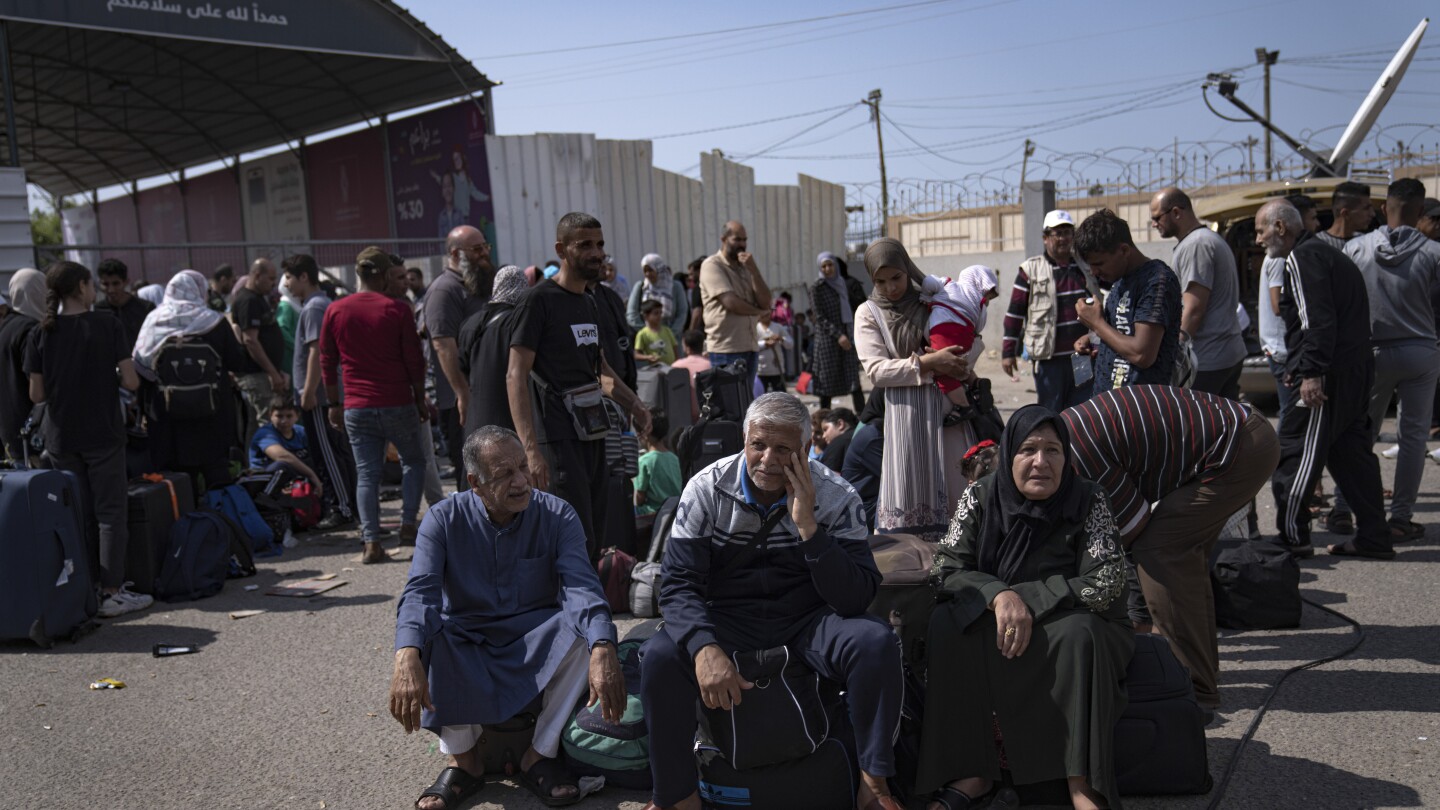The two countries, which flank Israel on opposite sides and share borders with Gaza and the occupied West Bank, respectively, have replied with a staunch refusal. Jordan already has a large Palestinian population.
Egyptian President Abdel Fattah el-Sissi made his toughest remarks yet on Wednesday, saying the current war was not just aimed at fighting Hamas, which rules the Gaza Strip, “but also an attempt to push the civilian inhabitants to … migrate to Egypt.” He warned this could wreck peace in the region.
Jordan’s King Abdullah II gave a similar message a day earlier, saying, “No refugees in Jordan, no refugees in Egypt.”
Their refusal is rooted in fear that Israel wants to force a permanent expulsion of Palestinians into their countries and nullify Palestinian demands for statehood. El-Sissi also said a mass exodus would risk bringing militants into Egypt’s Sinai Peninsula, from where they might launch attacks on Israel, endangering the two countries’ 40-year-old peace treaty.



For sure. Which is why we need to figure it out now before we use up what resources we have left on making and shipping yet more bombs and tanks. I can’t even begin to imagine the carbon footprint of that.
It’s probably near carbon neutral as each dead person removes a lot of carbon load.
Let’s not go down the path of quantifying the ‘value’ of people’s lives, it has historically led to bad things.
Quantifying people’s carbon footprint isn’t quantifying the value of their lives.
And the value of people’s lives is quantified all the time. Any time money is spent to save people’s lives, the people who fund it are gonna want to know how much it costs and how many lives it’s expected to save. If the cost per life saved is too much, the money doesn’t get spent. Without doing that kind of calculation, you either spend no money saving lives, you do nothing but try to save lives, or you just throw a random amount of money at the problem and hope it does enough good to be worth it.
It’s also not even necessary in the context of comparing the impact of continuing war to advocating peace. Military equipment doesn’t have an inherent right to exist or uses once created, and the people we’re talking about already exist and deserve a peaceful happy life as much as anyone else. The choice we do have though is around where we spend existing carbon and the damage we cause in pumping into mutual self-destruction.
I am keenly and painfully personally aware, and I don’t enjoy participating in that either. I also consider many implementations to have led historically to bad things because it is near impossible to quantify without some truly horrible and ham-fisted reductionism.